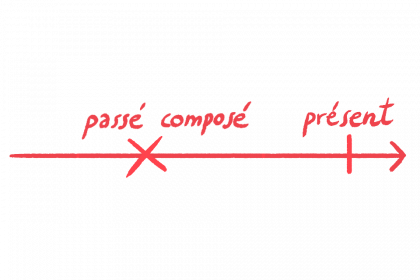The passé composé: past participles ending in -is
The verbs prendre (to take) and apprendre (to learn) have past participles that end in -IS, as do comprendre (to understand), mettre (to put), asseoir (to sit), and acquérir (to acquire). To create these past participles, remove the -ENDRE, -ETTRE, -EOIR, or -ÉRIR and add -IS (prendre → pris, mettre → mis, etc.). They are conjugated in the passé composé in the following way:
prendre en
J'ai pris
Tu as pris
Il a pris/elle a pris
Nous avons pris
Vous avez pris
Ils ont pris/elles ont pris
Tu as pris
Il a pris/elle a pris
Nous avons pris
Vous avez pris
Ils ont pris/elles ont pris
mettre en
J'ai mis
Tu as mis
Il a mis/elle a mis
Nous avons mis
Vous avez mis
Ils ont mis/elles ont mis
Tu as mis
Il a mis/elle a mis
Nous avons mis
Vous avez mis
Ils ont mis/elles ont mis
asseoir en
J'ai assis
Tu as assis
Il a assis/elle a assis
Nous avons assis
Vous avez assis
Ils ont assis/elles ont assis
Tu as assis
Il a assis/elle a assis
Nous avons assis
Vous avez assis
Ils ont assis/elles ont assis
J’ai mis ton téléphone sur la table. I put your telephone on the table.

Still having trouble with 'The passé composé: past participles ending in -is'? Master the rules of French grammar and improve your French level thanks to our online French lessons Frantastique. We're offering a 7-day free trial, so what are you waiting for?
What our users say:
Looking to improve French for beginners? Frantastique provides effective and fun training!
Tips for learning 'The passé composé: past participles ending in -is'? Share them with us!

